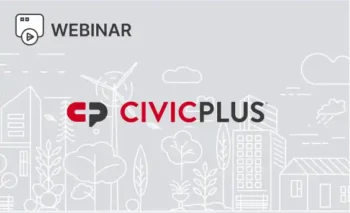“I’ve always wanted to live here,” Chelsea smiles at her new husband as she stands on the corner of Main and Second streets in the heart of town. “When we move into our new house, we can go to the Farmer’s Market every weekend, and when we have kids they can join the summer camp.”
Her husband Aarush looks around, picturing what it would be like to move his chiropractic business from the city to this bustling Main Street.
“I love how clean it is,” he adds. “They really take care of things here. They keep the streets plowed in the winter, and they maintain the parks and roads, and every side street has plenty of street lights.”
“It’s the perfect place to call home,” Chelsea beams.
What Makes a Community a Home?
What makes a couple like Chelsea and Aarush choose to call a place home? For every family, the factors are different. Sometimes, it’s a convenience to work; other times, proximity to family, and often, it’s the aesthetic that a place offers and how its unique feeling aligns with their lifestyle desires. What makes a community a desirable home is also often how well it operates — its cleanliness, community offerings, affordability, and leaders. The conveniences and opportunities that couples like Chelsea and Aarush associate with a sense of community are made possible by behind-the-scenes heroes — the local government leaders whose operations, systems, and infrastructure support positive interactions between residents and their community.
Those touchpoints are civic experiences, and they are the foundation of a city, town, village, or county’s success.
What are Civic Experiences?
Civic experiences are interactions between local governments and their residents. These interactions are many and varied. Residents get permits, attend municipal meetings, participate in recreational programs, book facilities, make payments, and much more. Government staff members process various requests, administer programs, provide public safety, and handle many other tasks that keep the municipality running smoothly.
These interactions encapsulate the moments when residents experience their local government, even if they don’t think of such touchpoints as government interactions. Each experience can be positive or negative, and every one of them makes a lasting impact.
Governments that optimize civic experiences:
- Gain an appreciation for getting things done
- Drive more revenue
- Operate more efficiently with happier staff members
How Local Governments Can Create Positive Civic Experiences
At a time when budgets and resources are limited, local government employees are often overworked and unseen. They are on the front lines every day, handling more resident interactions than State or Federal agencies, yet their residents are less aware of the impact they have on their day-to-day lives.
Local governments directly impact residents’ lives because they deliver a wide variety of services addressing many important aspects of daily life, such as safety, recreation, home improvements, and civic participation.
Despite supporting more frequent and varied resident interactions, local governments have smaller budgets and fewer resources. They often struggle with cutbacks, aging technology infrastructures, and siloed departments that can complicate service delivery.
At the same time, resident expectations for quick and easy interactions have grown dramatically, influenced by ubiquitous connectivity, experiences in the commercial sector, and increased migration to online services accelerated by the COVID-19 pandemic.
How can local leaders juggle the competing challenges of budget pressures, resident expectations, and entrenched systems to create the highest quality resident service delivery? By optimizing civic experiences.
Civic experiences can happen online, via telephone, or in person. Regardless of the channel, the department, or the specific government service, every civic experience is defined by three basic characteristics:
- A beginning
- A duration
- A result
While negative perceptions of local government are magnified if a resident is confused about how to engage or the process is complicated or slow if the civic experience is easy, empowering, and effective, then the municipality has created an opportunity to strengthen its resident relationships, retention, and revenue.
For more information on civic experiences and how modern technology systems can support the digital transformation needed to power and empower positive resident-government interactions, download this eBook, Three-Step Guide To The Civic Experience For Municipal Managers


